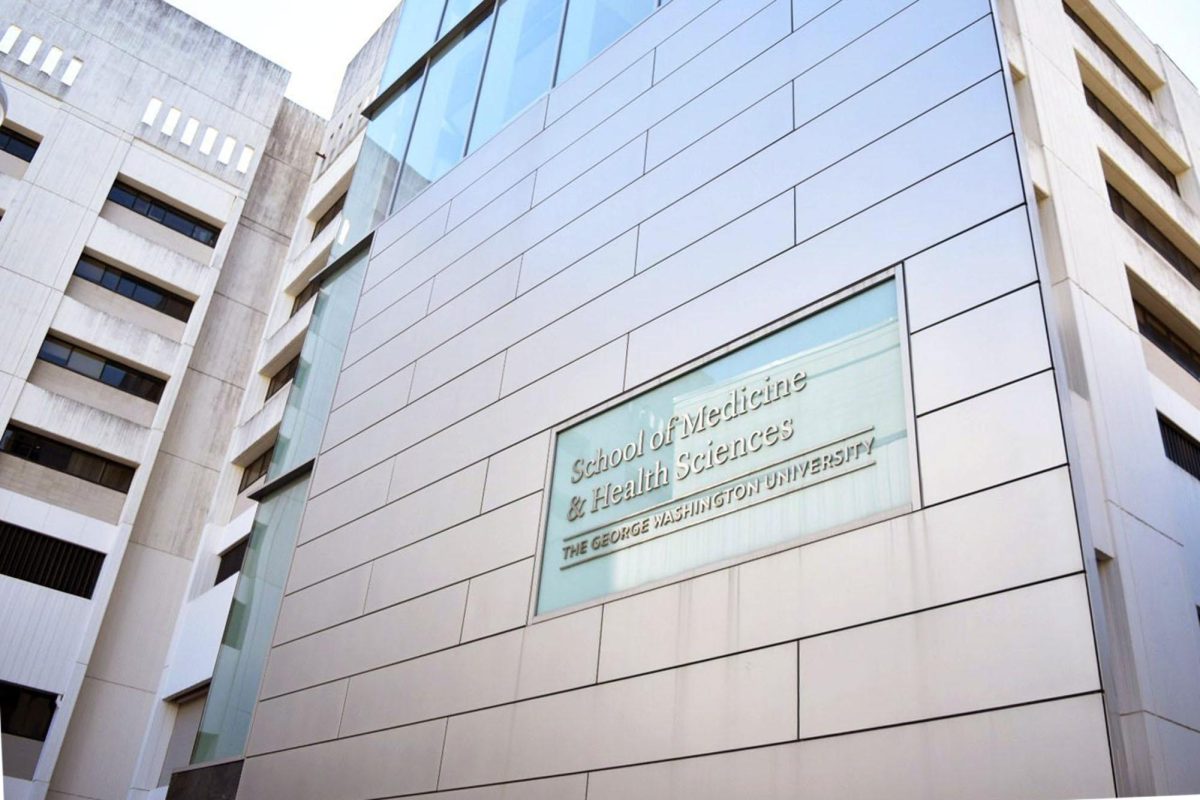Researchers said they discovered a new treatment that can reduce the effects of aggressive prostate cancer in a case report published Nov. 4.
Maneesh Jain, the report’s lead researcher and an oncologist at the School of Medicine & Health Sciences, and researchers from GW and the D.C. Veterans Affairs Medical Center began their study in June 2022, where they treated a prostate cancer patient and discovered new drug treatments for him that were chemically linked to a specific protein in his tumor. Jain said he hopes the case study will “motivate” other researchers to look into this treatment and see if other prostate cancer patients respond to it.
“I hope that what the case report predicts that others will respond, and if others respond, then I think the research possibilities are, there’s just a lot of them,” Jain said.
Jain said the patient initially did not respond to multiple kinds of treatment the researchers tried, and then they tested the patient’s tumor for the HER2 protein. He said when the patient tested positive for the protein, they used the antibody-conjugate drug T-DXd — a cancer drug that is specifically targeted to respond to certain proteins, including the HER2 protein — and the patient began showing results of tumor size reduction.
T-DXd consists of two parts — one part containing the antibody to HER2 that locates the protein in the body and binds to it and another part that works as a chemotherapy drug that assists in killing the cancer cells.
Jain, who was the doctor in charge of specifically interacting with and treating the patient, said the study marks the first time this drug had been used on a patient with prostate cancer as it is usually used to treat breast and gastric cancer.
“It was very moving for me. On that day that I gave it to him, I remember telling him ‘I don’t know if this works,’” Jain said. “‘You do have this HER2 expression. We don’t do this in prostate cancer, and you might be the first person in the world that we’ve tried this on.’”
More than 3 million men in the United States have prostate cancer, but according to the Prostate Cancer Foundation, the disease disproportionately affects Black men, who are more than twice as likely to die from the disease and one in six develop prostate cancer at some point in their lives.
The patient from the case study is a Black man, who had stage four prostate cancer. Jain said Black men are more likely to have “aggressive” prostate cancer — which researchers have not found a definitive reason for — and the HER2 protein tends to show up in patients where the disease is more severe, so he hopes that the treatment will be effective for other Black patients.
“Maybe this particular drug, if it works for others, it might help that population out because of the features that they have,” Jain said.
Victor Nava, a pathologist with SMHS who contributed to the case report, practices at the Veterans Affairs Medical Center in D.C. Nava said the research team reviewed medical literature to find outcomes of identifying HER2 in prostate cancer, and researchers disagreed about whether the protein was significant to prostate cancer research, as it is most commonly used in breast cancer and gastric cancers.
“When we review the literature, we saw it was all over the place,” Nava said. “What the role of HER2 in the prognosis of prostate cancer was like, if you were positive or negative that may indicate your survival over time or how your disease is going to be more or less aggressive. So the literature was kind of variable.”
Nava said since the drug is an antibody-conjugate to HER2, it only specifically targets protein and will likely not lead to the typical side effects of cancer treatment, like hair loss and sickness, because it only kills the cancer cells it needs to, as opposed to also killing healthy cells in the body, like other treatments including chemotherapy.
“When you give systemic chemotherapy, all the patients lose hair, and they get really sick because you’re killing all the cells in the body,” Nava said. “With this, you can give micro doses of chemo, so you direct the chemo just to the tumor.”
Fayez Estephan, an assistant professor of medicine at SMHS, said he joined the study under an oncology fellowship in June 2022 and that prostate cancer lacks targeted therapy even though there are many drugs that target HER2, which are involved in targeted therapies such as lung cancer and breast cancer.
“It’s mainly hormonal therapy and chemotherapy, and that’s it. So we wanted to look into something different, something that worked in other tumors and see if it’s going to work in prostate cancer,” Estephan said.
Starting in September 2024, the study is expanding into a second phase of clinical trials led by Jain at the D.C. VA to further test Enhertu, a brand name of T-DXd, in prostate cancer patients with HER2 expression to see if they exhibit the same response as the case study patient.
“Oncology in general is moving from one size fits all, like treating all the breast cancer the same way, into personalized treatments, and that’s what we need in prostate cancer. We hope that this trial proves that this drug works in prostate cancer, will make the patients live longer and be efficacious and also to be well curated,” Estephan said.





